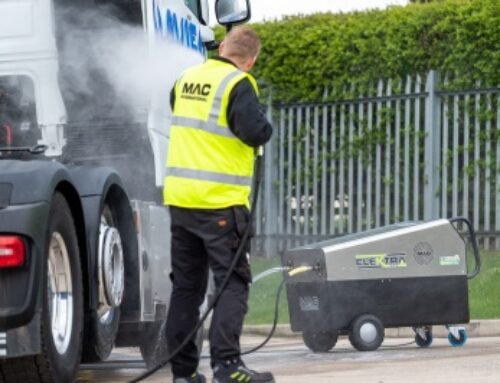Calling in the oil experts
 Phil Riley, technical manager at Petro-Canada Lubricants, an HF Sinclair brand, offers his perspective on how fleets can benefit from technical expertise when it comes to lubricant management
Phil Riley, technical manager at Petro-Canada Lubricants, an HF Sinclair brand, offers his perspective on how fleets can benefit from technical expertise when it comes to lubricant management
Whether your fleet consists of long-haul heavy-duty commercial vehicles or medium-duty delivery vehicles, industry-leading technical support can provide significant benefits and help improve efficiency.
Access to lubricant experts enables you to make informed decisions on your engine oil and, when engaged on an ongoing basis, can contribute to reduced total cost of ownership.
In this article we explore the top five areas that our technical experts are supporting customers to navigate every day.
Lubricant consolidation
If you manage a mixed fleet, you’ll likely have a variety of lubricants in your workshop. This can increase the area required for oil storage as well as the potential for human error in selecting the wrong lubricant for an application.
Seeking the advice and insight of a technical expert allows you to safely consolidate your lubricants while providing proper lubrication of vital components. As consolidation can be an extremely complex process where each original equipment manufacturer’s (OEM) recommendations need to be taken into consideration and carefully balanced, it is crucial to seek guidance from an expert.
As while a degree of consolidation can be beneficial, it’s important not to go too far by sacrificing the benefits of what one lubricant can offer over another to reduce the number of products in the workshop. This can compromise protection of the hardware which in turn increases wear rates and in extreme cases can result in engine failure.
Optimising oil drain intervals
Optimising your oil drain intervals offers a wide range of benefits from enabling trucks to be on the road longer between scheduled maintenance to directly reducing maintenance costs. However, oil drain intervals should only be extended with the support of a technical service advisor.
This is because safely extending oil drain intervals requires the correct analysis and interpretation of used oil analysis data to determine the impact of extending the period between oil changes. Added to this, when oil drains begin to be extended it needs to be done under close monitoring to identify any early signs that lubrication may be compromised.
Only by seeking expert support and guidance can oil drain intervals be safely extended and time in the shop – and maintenance costs – minimised.
Interpreting used oil analysis data
When reading used oil analysis reports various data points and influencing factors need to be considered to provide meaningful insight into a vehicle’s condition. This is where the knowledge, insight and experience of lubricant experts and technical service advisors is invaluable in helping translate laboratory data into actionable insight.
For example, a key consideration for mixed fleets is that not all OEM thresholds are the same for specific properties. While one level could be deemed acceptable in a specific vehicle, the same level in a different vehicle could be a cause for concern.
Technical experts are able to identify where immediate maintenance may be required such as an increase in iron and aluminium which could indicate a failing camshaft, coolant attacking the liners or the engine requiring mechanical adjustment.
Working alongside a lubricant expert allows these problems to be quickly highlighted and maintenance schedules to be adjusted accordingly to prevent issues becoming too serious or expensive to repair.
To further support a fleet and its technicians, technical experts can also share their knowledge through specialist training sessions. This will allow you and your team to become confident in interpreting used oil analysis report data and making maintenance adjustments based on your own insight.
Troubleshooting
Lubricant experts can also provide in-the-moment advice to help problem solve. For example, our technical service advisors often provide guidance on how to take a good quality oil sample as well as offering insight into evolving specifications like the recent changes from European Automobile Manufacturers Association (ACEA) in 2022.
Other frequently asked questions focus on what the OEM recommended interval is – this is crucial to maintaining engine warranties so should be considered essential knowledge for all fleets.
Just a phone call away, technical service advisors offer a wealth of knowledge, insight and experience to help you overcome your day to day lubricant challenges.
Workshop efficiencies
Proper lubricant organisation and storage has a significant impact on a workshop, with the ability to reduce the risk of using the wrong engine oil while maximising space and efficiency.
By visiting your maintenance site and being on the ground in person, technical service advisors can share practical guidance on how you can optimise your lubricant storage and workshop organisation. From providing advice on how to safely store and decant lubricants to giving advice on labelling, inviting a lubricant expert to your facility can allow you to gain a wealth of useful tips and guidance, as well as provide an opportunity to discuss any questions you might have.
Lubricant technical experts can play a key role in supporting the evolution of your engine oil practices and overall fleet efficiency. From sharing insight and knowledge on oil drain intervals and used oil data to troubleshooting problems in real time, collaboration with a lubricant technical advisor can help reduce maintenance costs while improving engine protection.










